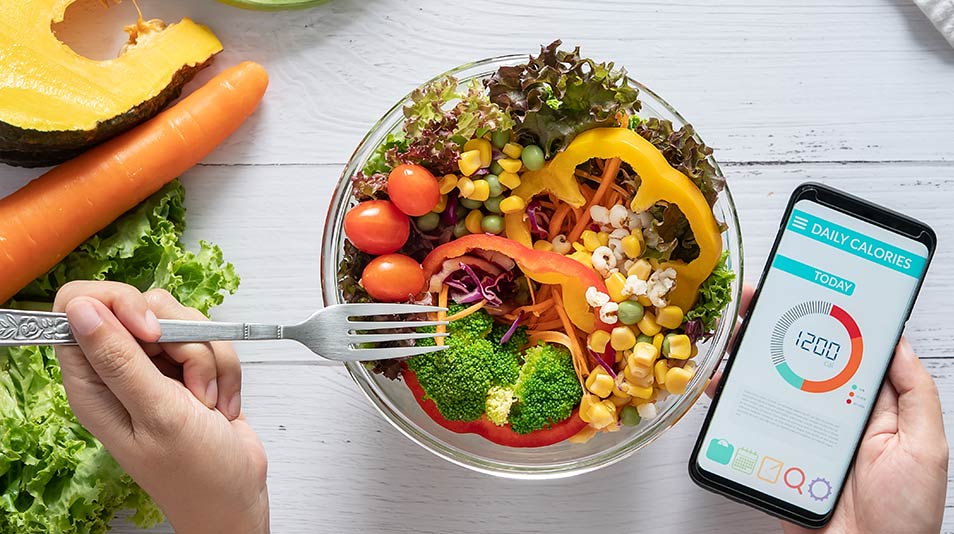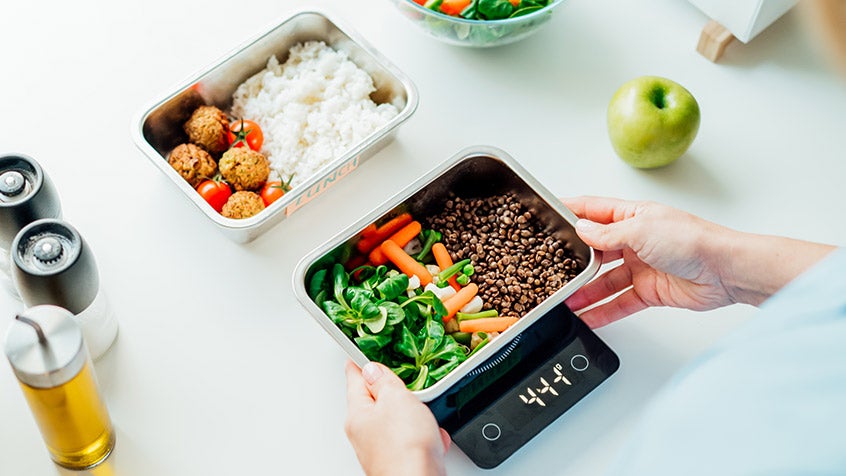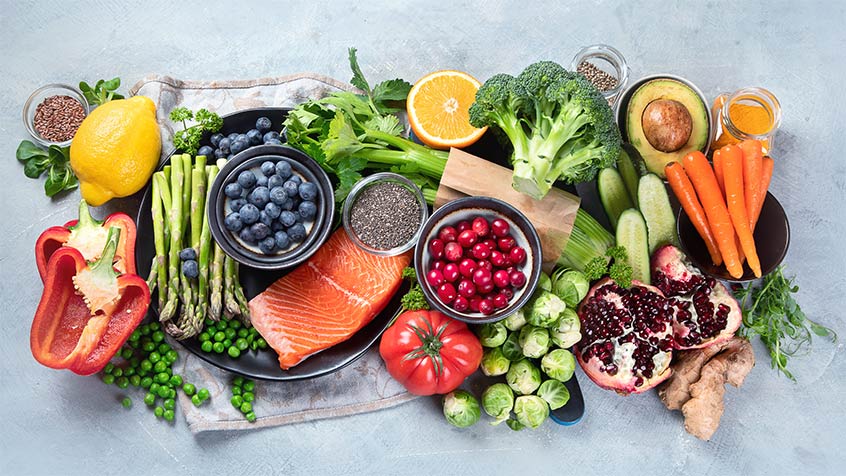Full and fuelled - navigating a calorie deficit
by Patrick Ibsen on Sunday 10 December 2023
4 min read
Understanding caloric deficit might sound complex, but it's easier than you think. The concept plays a crucial role in weight management, where consuming fewer calories than your body expends can help shed unwanted kilos.
But it's not just about numbers. It's about maintaining a well-rounded diet that fuels your body while creating a slight shortfall for those who aim to lose weight. Join us as we unpack the meaning behind caloric deficit, and emphasise the significance of a balanced diet. We’ll offer practical tips to navigate and manage this balance for a healthier lifestyle.
What is a caloric deficit?
In simple terms, a caloric deficit occurs when you burn more calories than you put in – through food and drinks. This deficit is fundamental in weight management, as it stimulates the body to utilise stored energy, primarily from fat, resulting in potential weight loss. It involves balancing the calories you consume and the energy your body burns.
Unlocking the power of a well-balanced diet
A well-balanced diet isn't just about counting calories; it's about feeding your body the right blend of nutrients. All of which play distinct roles in your health and wellbeing. Here’s how:
- Proteins aid in tissue repair and muscle building.
- Fats are essential for hormone production and nutrient absorption.
- Carbohydrates fuel our body's energy needs.
- Micronutrients (vitamins and minerals) are vital for a range of things.
Striking a balance among these nutrients ensures our body functions optimally and stays healthy. Incorporating a variety of whole foods into your diet provides you with a wide range of nutrients, supporting overall health. All of which can help you in achieving and maintaining a healthy weight.
Tips on ways to navigate a calorie deficit
Increase protein to keep you full for longer
Proteins keep you feeling full for longer, compared to carbohydrates and fats. This potentially reduces your overall calorie intake by curbing excessive snacking or overeating throughout the day. A higher protein intake can help preserve lean muscle mass, which is beneficial for weight loss as it supports a healthier body composition.
Make fibre your friend
Including fibre-rich foods in your diet reduces caloric deficit by promoting feelings of fullness and satisfaction. Like protein-rich foods, high-fibre foods take longer to digest, keeping you fuller for longer. A diet rich in fibre supports digestive health, which can improve nutrient absorption and overall wellbeing during a period of reduced calorie intake.
Stay hydrated
Staying adequately hydrated is crucial when managing caloric deficit as it can help control hunger cues. Often, thirst can be mistaken for hunger, leading to unnecessary calorie consumption. By maintaining proper hydration, you can avoid overeating and manage your appetite. Additionally, water can aid digestion and metabolism, potentially optimising the body's ability to utilise stored energy while navigating a reduced-calorie intake. Try to have a reusable water bottle on you to stay hydrated throughout the day.
Practice mindful eating
Practise mindful eating techniques to foster a deeper connection with your body's hunger and fullness cues. Mindful eating encourages awareness of portion sizes, eating slowly, and savouring each bite. This can prevent overeating and promote satisfaction with smaller portions. By being attentive to hunger signals and focusing on the eating experience, you may reduce the likelihood of consuming excess calories.
Go for low-calorie meals
Doing so enables you to consume larger portions of food while managing overall calorie intake. Additionally, incorporating these alternatives into meals and snacks can aid in creating a more satisfying eating experience, potentially reducing the urge to consume higher-calorie foods. Adjusting calorie dense meals is much easier than you think, with some calorie conscious meals requiring little prep.
Take it easy on yourself if you slip up
Adopting a forgiving attitude helps maintain a positive relationship with food and avoids feelings of guilt, which can lead to further unhealthy eating habits. Acknowledging occasional slip-ups as a natural part of the process allows for resilience. We all do it, and there’s nothing to be ashamed of. Here are some ways you can enjoy a few guilt-free snacks.
Try tracking your meals
Tracking meals can provide insights into eating habits without feeling overly restrictive. Taking images of your meals offers a reflective tool to assess your food choices and portion sizes over time. Dedicate time at the end of the week to review your meal choices and make adjustments when necessary. It encourages mindfulness without the need for detailed calorie calculations, promoting awareness of eating patterns and aiding in making more informed dietary choices. Not to mention, you’ll get some snaps for your socials.
Spice things up a bit
High-calorie condiments often contribute additional calories without significant nutritional value. Substituting them with spices and herbs can enhance flavour without added calories, potentially reducing overall calorie consumption. Additionally, spices and herbs offer various health benefits and can elevate the taste profile of meals, making it easier to adhere to a reduced-calorie diet without sacrificing flavour.
If you’re still unsure of how to reduce your caloric deficit, reach out to one of our friendly Personal Trainers, who can help guide and support you on a path to optimal nutrition. Pop into your local Virgin Active club and speak to one of our friendly staff today.
Related articles
Unwind
3 min read
Are you experiencing mental or physical fatigue?
Unwind
3 min read
How to manage holiday stress and anxiety
Unwind
3 min read
Sleep vitamins (that actually work)
Enjoying our blog?
Sign up to our newsletter to get updates on training, healthy living, news and events.






